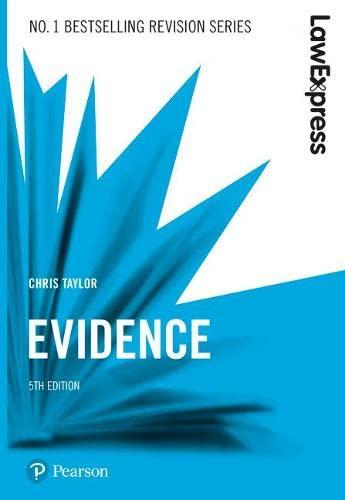Question
Q:Local participation requirements are government controls which prohibit a foreign firm from removing an excess amount of currency from the host country. A: True or
Q:Local participation requirements are government controls which prohibit a foreign firm from removing an excess amount of currency from the host country.
A: True or False
Q: Foreign direct investment refers to ownership and active control of the franchise enterprise.
A: True or False
Q:Most of the 192 nations in the world have not reached the "developed or industrialized" status of the U.S. and Western Europe.
A: True or False
Q:A restriction on the repatriation of profits refers to the legal requirement that allows an investing firm to remove income from the host country.
A: True Or False
Q:The difference between primary and secondary sources of international law is that the latter refers to what is the law and the former is what the law should be.
A: True Or False
Q:A self-executing treaty vests legal rights and remedies in countries immediately after legislative approval by the signatory country.
A: True Or False
Q:Comity is a judicial doctrine, not an international law, based upon the desire for cooperation and reciprocity.
A: True Or False
Q:In the Union Carbide case, the United States District Court decided that India was a forum non conveniens because the Indian government was too involved with over twelve government agencies regulating the business.
A: True Or False
Q:Protocol is a required procedural step to ensure a treaty is negotiated properly.
A: True Or False
Q:The three major forms of international business are trade, licensing/franchising agreements, and foreign direct investment.
A: True Or False
Q:An export control is a restriction on goods, services or technology designed to drive up the currency value of an exporting country.
A: True Or False
Q:The key legal principle in the case of Liechtenstein v Guatemala is that international law requires a nation to honor the naturalization of a former citizen by a different nation.
A: True Or False
Q:The Act of State Doctrine is a principle of law that permits the courts of one country to inquire into the validity of the legislative acts of another country, but only if there is a reasonable connection to the legislative act.
A: True Or False
Q:The jurisdiction of the International Court of Justice is limited to cases brought by nations against nations, excluding individuals and corporations.
A: True Or False
Q:Judgments of the International Court of Justice are enforced by public opinion, diplomatic pressure and good faith, which is referred to as international custom.
A: True Or False
Q:A nations domestic courts may have jurisdiction over piracy, because this crime can only be accomplished on the high seas where territorial jurisdiction is non-existent.
A: True Or False
Q.A self-executing treaty vests legal rights and remedies in private parties as well as the signatory nations.
A: True Or False
Q:Litigation costs excessive time and money, but after completion they tend to be the best avenue for a long term business relationship between the parties.
A: True Or False
Step by Step Solution
There are 3 Steps involved in it
Step: 1

Get Instant Access to Expert-Tailored Solutions
See step-by-step solutions with expert insights and AI powered tools for academic success
Step: 2

Step: 3

Ace Your Homework with AI
Get the answers you need in no time with our AI-driven, step-by-step assistance
Get Started


